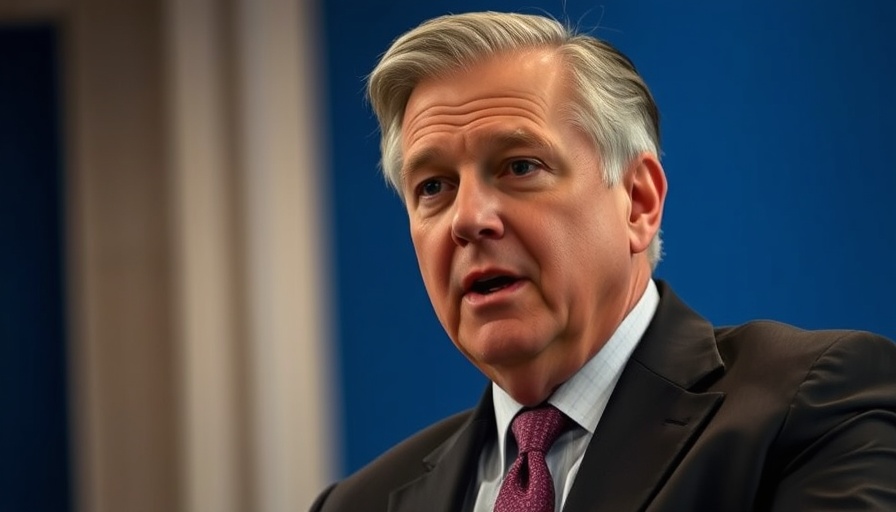
Macron's Bold Proposal: Transforming European Defense
In a startling shift for European security policy, French President Emmanuel Macron has signaled openness to the possibility of stationing French nuclear weapons in other European nations. This announcement has sparked a myriad of reactions across the continent, especially amidst rising global tensions and the ongoing conflict in Ukraine. By expanding the potential reach of its nuclear capabilities, France positions itself at a pivotal intersection of deterrence strategy and diplomatic relations.
Historical Context: The Role of Nuclear Weapons in Europe
To grasp the implications of Macron's proposal, one must consider the historical context. After World War II, Europe has often grappled with its defense strategies. The Cold War solidified nuclear arms as a crucial component of military policy, particularly through NATO's deterrent stance against the Soviet Union. France, maintaining an independent nuclear force, has historically valued its strategic autonomy. Yet, with the rise of threats from beyond its borders, the calculus appears to be shifting.
Social Connection: Why This Matters to European Citizens
The idea of hosting nuclear weapons in neighboring countries is bound to evoke strong emotions among European citizens. Discussions about the safety and moral implications of nuclear deterrents resonate deeply within public discourse. Citizens are likely to feel apprehensive about hosting foreign military assets, driven by historical memories of nuclear tensions. Furthermore, the conversations around sustainability and responsibility in governance raise questions about the ethical implications of pursuing nuclear strategies.
Counterarguments: Voices of Caution
While many support the strengthening of European defense capabilities through shared nuclear assets, critics urge caution. Concerns about escalating regional arms races and the potential for miscalculation in high-stress situations arise. Moreover, arguments abound regarding the environmental impact of nuclear arsenals, calling into question long-term sustainability goals that both Macron and other European leaders emphasize. This debate illustrates the need for a balanced approach that weighs national security against ecological and ethical concerns.
Future Predictions: The Evolution of European Security
As geopolitical dynamics shift, the future of European security may change dramatically. Analysts predict that Macron's proposal could lead to a new framework for cooperative defense among European nations. If embraced, this could signify a united front against common threats, yet it may also intensify debates within nations about nuclear policies and military spending. Countries may begin reassessing their positions on non-proliferation treaties and alliances to align with France’s strategic identity.
Conclusion: The Call for Thoughtful Discussion
Macron's willingness to position French nuclear weapons within Europe provokes critical discussions about national sovereignty, security, and ethical governance. As Europe grapples with these complexities, it is clear that a well-informed public discourse is essential for navigating this precarious transition period. Communities must engage in conversations about how best to ensure their safety while fostering sustainable and responsible governance.
Understanding the implications of Macron's proposals extends beyond military strategy; it is about the future of European diplomacy, environmental responsibility, and the collective psyche of nations facing a rapidly changing world. The allure of military enhancements must be matched with a commitment to ongoing dialogue and ethical considerations in defense policy.
 Add Row
Add Row  Add
Add 



Write A Comment